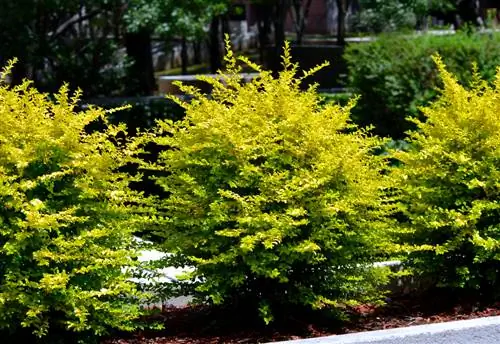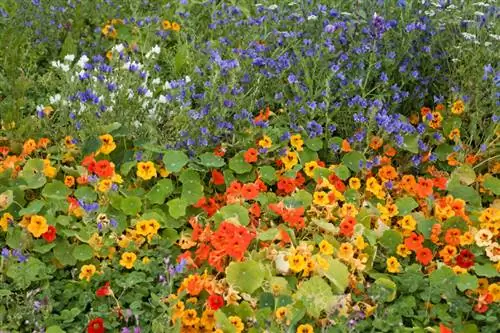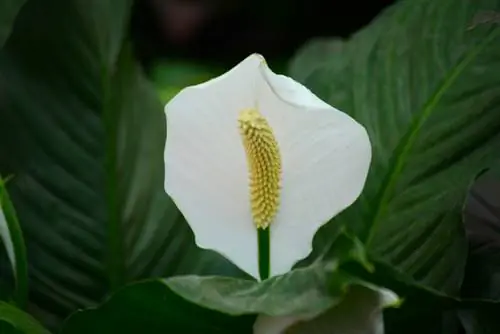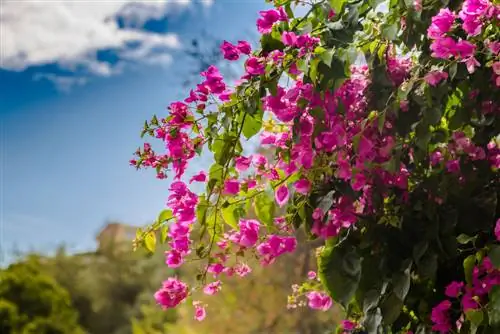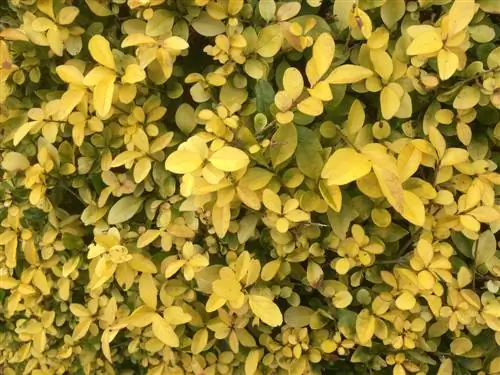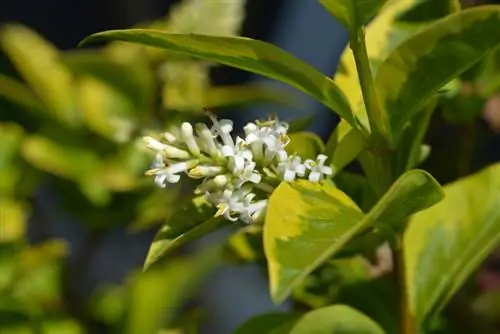- Author admin leonars@hobbygardeners.com.
- Public 2023-12-16 16:46.
- Last modified 2025-01-23 11:22.
This plant grows eagerly, blooms and produces numerous fruits. It should be clear to every gardener that they need to access plenty of nutrients. The natural occurrence in the soil cannot keep up for long. It needs to be fertilized!
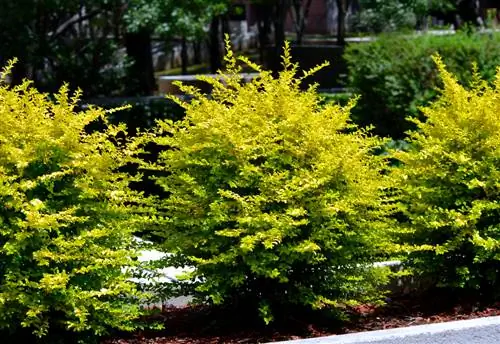
How should you properly fertilize golden privet?
Golden privet needs fertilizer such as compost and horn shavings (3 liters of compost and 100 grams of horn shavings per square meter) in March. Potted plants benefit from liquid fertilizer. If necessary, fertilization can be carried out regularly until mid-August. You should also lime every now and then.
Suitable fertilizers
Compost and horn shavings can be used as fertilizers for a privet hedge or solitary plant in the garden soil. Both supply the soil with new nutrients evenly and over a long period of time. The combination of both substances is ideal. The compost often used in the home garden is additionally enriched with nitrogen using horn shavings. This substance is essential for leaf growth. You need per square meter:
- 3 l compost
- 100 grams of horn shavings
Other long-term fertilizers (€12.00 on Amazon) from retailers can also be considered for fertilization. When it comes to dosage, you should follow the manufacturer's instructions.
Fertilizer for potted plants
Golden privet growing in a pot can be provided with a conventional liquid fertilizer. Use quality fertilizer, which you administer according to the packaging instructions.
Optimal timing
The golden privet should be supplied with the above-mentioned fertilizer combination at least once a year. The month of March is ideal for this, because the golden privet sprouts immediately afterwards.
If necessary, it can continue to be fertilized at regular intervals throughout the growing season. However, the last fertilization should not take place after mid-August, otherwise the shoots will no longer mature and become hardy.
Tip
Be careful when working the fertilizer into the soil, because privets are shallow-rooted. Damaging their roots should be avoided, for example to avoid disease caused by wilt fungus.
Mulching with bark mulch
Young privets are often given a cover of bark mulch. There is nothing wrong with this, but one thing should be noted: bark mulch is low in nitrogen, and the microorganisms even use nitrogen when it decomposes. But then the plants lack this substance. Growth stops and leaves turn yellowish.
When mulching young privets, you should first provide them with fertilizer. Bark compost is also better than bark mulch because it is already more decomposed.
lime every now and then
Golden privet loves lime and grows better when it finds this element in the soil. You should first determine the pH value of the soil to get reliable numbers. If the value is below 6 on sandy soils and below 6.5 on clayey soils, you should lime.
- lime in autumn
- sprinkle carbonic lime preparations in the root area
- Observe the manufacturer’s dosage instructions

